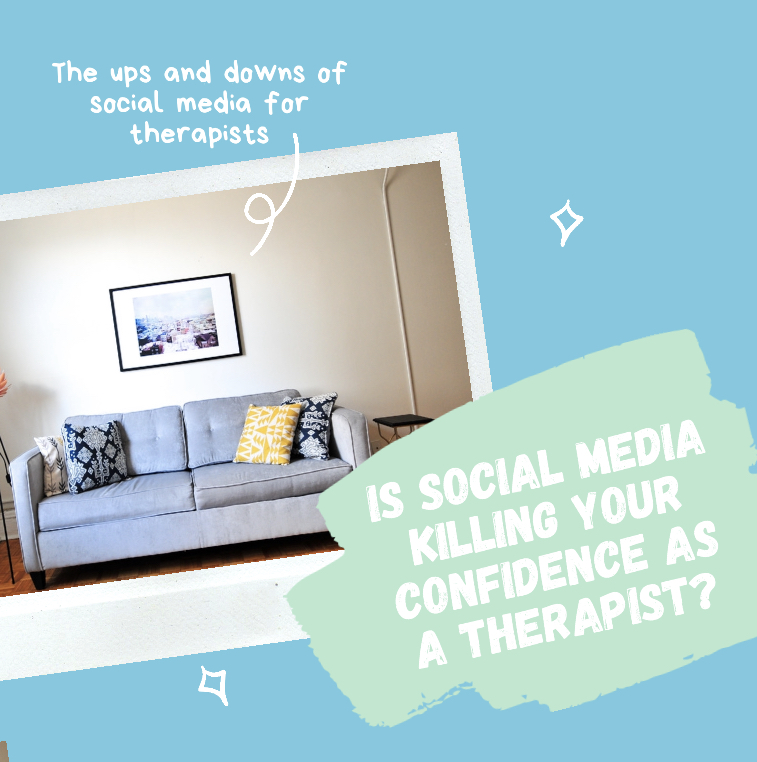Social media can be amazing for connecting therapists. Despite connection and relationship being the major focus of our work with clients, the reality is many therapists feel isolated.
Social media groups allow us to connect around issues of commonality. We band together based around the type of work we do and therapeutic orientation.
But there can be a big downside.
Suddenly you are exposed to thousands of therapists. All with varying levels of training, experience and different opinions on pretty much everything.
Differences in skill levels and knowledge bases are suddenly apparent. Differences in personality styles and therapeutic orientations are also on display.
This can lead to a greater number of comparisons between yourself and others. Also, because a number of therapists choose to have non- identifiable monikers to protect their privacy on social media, it can be difficult to gauge what substance lies behind the comments and claims made.
This can lead you to wonder if what you’re doing is ok, whether your development is on par for your expected level, whether you “should know” things that you don’t seem to know.
You might find yourself reading articles posted or googling new concepts and therapy types you’ve never heard before. Some of this might be a wonderful opportunity to learn, some of it might be like getting extra homework to feel good enough.
There can also be collective emotions that run through social media groups. At times, more anxious therapists can dominate discussions and present concerns in a way that seem like you need to be more worried about things like audit and compliance. To these therapists, the threat of being in trouble is imminent. Others can value judge around what people should charge and what therapy is best. Some take great pleasure in taking people of opposing views down.
This can lead you to wonder if you’re attitude is cavalier. Surely if everyone else is, you should also worry more, know more, study more, review your processes more. Maybe you don’t care enough? Maybe you are underestimating the risk? Perhaps AHPRA and Medicare are really looking over your shoulder waiting to catch you. On a bad day, you might even feel tempted to stop being a therapist because the lists of shoulds feel so overwhelming.
All of this can lead to an increase in self-doubt and not feeling good enough.
So be careful. Use social media groups wisely. Some ways to manage it is:
- Consider what your needs for connection are. Belong only to groups that help with that need.
- If you find yourself feeling increasingly anxious about your abilities, find ways to protect yourself such as limiting time reading posts or making sure you only drop into the group when needed.
- Developing an attitude of taking what you need from the group instead of believing that you have to absorb it all.
- Stick to themes of interest instead of anxiously scanning every post and all the comments.
- Recognise that people who appear excessively confident on social media may not feel that confident in real life or even have the abilities they appear to have. Overconfidence online might even be a coping mode to help some therapists deal with their own anxiety around competence. Being able to regurgitate theory is not always evidence of being an excellent therapist. It’s impossible to know for sure, unless there is evidence of their real world proficiency.
If you are an early career clinician remember it’s ok to take time to learn. It’s ok to take time to build your career and interests. The expert responses you see today were built on similar building blocks to yours.
Remember that this is your career to develop. You can take your own path. What other people do and say on social media is only one source of information.
Make sure you commit regularly to your own supervision and professional development.
Try to meet therapists in the real world. Mostly we are friendlier and with real vulnerabilities in our real world selves. This can help break down the mystique that online profiles might create.
To learn more about mentoring or supervision to feel confident as a therapist click here.
Love what you read and want more insights from Nadene? Book a coaching consult here or join my mailing list to receive your free Self-doubt Busting Cheatsheet and get regular quality information and offers straight to your inbox.

